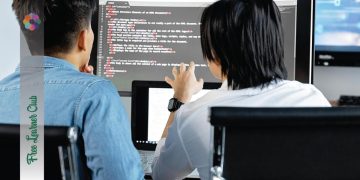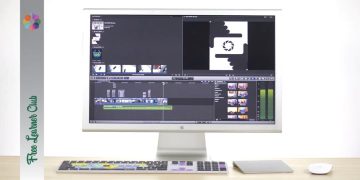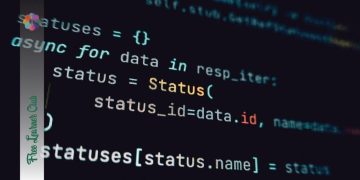The job interview is a crucial moment in the selection process, where employers and candidates meet to explore whether there is a mutual connection. However, conducting a good interview is not simply a casual conversation; it is a strategic art that involves communication, assessment, and decision-making skills.
In this extensive article, we will explore in depth how to conduct an effective job interview, from preparation to assessment techniques, to ensure accurate selection and identification of the ideal candidate.
I. Comprehensive Interview Preparation:
1. Development of the Job Profile:
- Understanding the Position: Analyze the key responsibilities and skills associated with the position to set clear expectations.
- Desired Competencies: Identify the specific competencies required to be successful in the role.
2. Curriculum Review and Application:
- Work History Analysis: Evaluate the work experience, achievements, and skills mentioned in the candidate’s resume.
- Identifying Key Questions: Develop specific questions based on the resume to obtain detailed information.
3. Establishing Interview Objectives:
- Clarity in Objectives: Define the specific objectives of the interview, such as evaluating technical skills, soft skills, or cultural fit.
- Evaluation Criteria: Establish clear criteria for evaluating candidates’ responses.
II. Effective Interview Techniques:
1. Structured vs. Unstructured Interviews:
- Structured Interviews: Establish a set of predefined questions to evaluate all candidates consistently.
- Unstructured Interviews: Allow flexibility to adapt to the dynamics of the conversation, although they may be less consistent in assessment.
2. Behavioral Questions:
- Situation, Task, Action, Result (STAR): Use the STAR approach to elicit detailed responses about past situations and behaviors from the candidate.
- Sample Questions: Develop questions that prompt candidates to share specific examples of their past skills and experiences.
3. Technical Competence Questions:
- Specific Knowledge Assessment: Use questions that allow candidates to demonstrate their technical skills and knowledge related to the position.
- Case Studies: Incorporate case studies to assess the candidate’s ability to apply their skills in practical situations.
4. Adaptability and Problem Solving Questions:
- Hypothetical Situations: Pose hypothetical questions to assess the candidate’s ability to face challenges and adapt to new circumstances.
- Real-Time Problem Solving: Propose practical problems during the interview to assess real-time problem-solving.
III. Soft Skills Assessment and Cultural Adjustment:
1. Interpersonal Skills:
- Teamwork: Explore previous collaboration experiences and the candidate’s contribution to teamwork.
- Communication: Evaluate the ability to communicate effectively, both orally and in writing.
2. Cultural Adjustment:
- Company Values: Ask about the company’s values and culture to assess the candidate’s alignment.
- Diversity and Inclusion: Explore the candidate’s experience and openness to diversity in the workplace.
IV. Evaluation of the Candidate’s Responses:
1. Active Listening and Observation:
- Verbal and Nonverbal Indicators: Pay attention to the candidate’s verbal and nonverbal responses to obtain a complete assessment.
- Follow-up Questions: Ask follow-up questions to obtain more details or clarification when necessary.
2. Evaluation of Desired Competencies:
- Comparison to Assessment Criteria: Compare the candidate’s responses to predefined criteria to assess suitability.
- Consideration of Context: Take into account the specific context of the candidate’s experiences when conducting the assessment.
V. Techniques to Improve Objectivity:
1. Interview Panel:
- Evaluator Diversity: Involve multiple interviewers to gain diverse perspectives and reduce individual biases.
- Consolidation of Assessments: Bring interviewers together to discuss and consolidate assessments before making decisions.
2. Use of Evaluation Scales:
- Weighted Criteria: Assign weights to different evaluation criteria to reflect their relative importance.
- Numeric or Descriptive Scale: Use numerical or descriptive scales to objectively evaluate the candidate’s responses.
VI. Constructive Feedback for Candidates:
1. Clear Communication of Results:
- Transparency: Provide clear feedback on the candidate’s performance in the interview.
- Areas for Improvement: Identify areas for improvement and provide constructive suggestions for future development.
VII. Common Challenges in the Job Interview and Strategies for Overcoming Them:
Job interviews are a crucial step in the selection process, but they can also be a challenge for both candidates and interviewers. Here are some common challenges in job interviews and strategies to overcome them:
1. Candidate Anxiety:
- Challenge: Candidates often experience anxiety before and during the interview, which can affect their performance and confidence.
- Strategies:
- Provides clear information about the interview process and what to expect.
- Conduct practice interviews or simulations to help candidates feel more comfortable.
- Create a relaxed and friendly atmosphere during the interview.
2. Lack of Clarity in Questions:
- Challenge: Unclear or ambiguous questions can make it difficult for candidates to understand what is expected of them.
- Strategies:
- Ask questions in a concise and specific manner.
- Provide examples or context where necessary.
- Listen carefully to the answers and follow up with additional questions if necessary.
3. Interviewer Bias:
- Challenge: Interviewers may have unconscious biases that influence their selection decisions.
- Strategies:
- Provides training to interviewers on diversity and inclusion and the importance of avoiding bias.
- Uses structured selection processes with predefined questions and objective evaluation criteria.
4. Lack of Connection between the Candidate and the Company:
- Challenge: Candidates may not be attracted to the company culture or the position.
- Strategies:
- Highlight the company’s culture and values during the interview.
- Show genuine interest in the candidate’s goals and objectives and how they might fit into the organization.
5. Lack of Interview Experience:
- Challenge: Some candidates may lack interview experience, which can make them feel uncomfortable.
- Strategies:
- Provides pre-interview guidance, including tips on how to answer common questions.
- Be understanding and patient during the interview.
6. Lack of Preparation:
- Challenge: Candidates may not be adequately prepared for the interview, which can lead to poorly crafted or inappropriate responses.
- Strategies:
- Provides information about the interview, such as format, duration, and interviewers.
- Ask candidates to research the company and the position before the interview.
7. Inadequate Assessment of Skills:
- Challenge: Accurately assessing candidate skills and competencies can be difficult.
- Strategies:
- Use specific interview questions to assess relevant skills.
- Conduct practical exercises or skills tests if necessary.
8. Handling Difficult Questions:
- Challenge: Interviewers may be faced with difficult questions or sensitive situations, such as questions about salary or previous conflicts at work.
- Strategies:
- Be prepared to answer difficult questions honestly and professionally.
- Be transparent and avoid evasive answers.
9. Ineffective Communication:
- Challenge: Lack of clear communication during the interview can lead to misunderstandings.
- Strategies:
- Use clear language and avoid unnecessary jargon or technicalities.
- Encourage open communication and allow candidates to ask questions.
10. Making Hasty Decisions:
- Challenge: Interviewers can make hasty decisions based on first impressions.
- Strategies: – Conduct a thorough evaluation of each candidate before making a decision. – Consider conducting multiple rounds of interviews to get a more complete picture.
Overcoming these common job interview challenges requires preparation, empathy, and an objective approach. By providing a clear and transparent interview process and training interviewers to be fair and equitable, organizations can improve the quality of their selections and provide candidates with a more positive experience.
VIII. Technology and Virtual Interviews: Challenges and Opportunities:
Technology and virtual interviews have gained significant importance in the recruitment process, especially in a world where remote work and globalization are becoming more common.
However, while they offer many opportunities, they also pose specific challenges. Here are the main challenges and opportunities related to virtual interviews:
Challenges:
- Connection and Technology: Internet connection issues or lack of access to appropriate technology can be a barrier for both candidates and interviewers. This can affect the quality of the interview and lead to frustration.
- Limited Interaction: Virtual interviews often lack the personal interaction that occurs in an in-person interview. Gestures, nonverbal communication, and empathy can be harder to pick up on through a screen.
- Assessing Social-Emotional Skills: Assessing social-emotional skills, such as empathy and effective communication, can be more challenging in a virtual interview, as the connection may be less direct.
- Potential for Technical Distortions: Technical issues, such as audio delays or video problems, can hinder effective communication and create an uncomfortable experience for both parties.
- Distractions from the Candidate Environment: Candidates may face distractions in their environment, such as background noise, interruptions, or lack of privacy, which can affect their performance.
Opportunities:
- Access to a Wider Candidate Pool: Virtual interviews provide access to candidates from around the world, which broadens the scope of your talent search and can lead to hiring highly qualified candidates.
- Increased Flexibility: Virtual interviews offer greater flexibility for both candidates and interviewers, which can speed up the selection process and make it easier to coordinate interviews across multiple time zones.
- Cost Reduction: Eliminating the need to travel for in-person interviews can reduce costs associated with the selection process.
- Recording and Review: Virtual interviews can be recorded for later review, allowing recruiting teams to make more informed decisions and share recordings with other team members.
- Technical Assessment Tools: For technical positions, virtual interviews may include practical tests or online coding exercises to effectively assess technical skills.
- Pre-Recorded Interviews: Some platforms allow candidates to answer pre-recorded questions on their own time, giving them the opportunity to prepare their answers and showcase their communication skills.
To address the challenges of virtual interviews, it is important that both interviewers and candidates prepare adequately and have access to the necessary technology. Organizations can guide how to prepare for a virtual interview and resolve technical issues.
Overall, virtual interviews are a valuable tool in the recruitment process that provides access to diverse and global talent. However, it is important to recognize and address the inherent challenges to ensure that interviews are effective and equitable.
Additionally, combining virtual interviews with in-person interactions, when possible, can be an effective strategy for a thorough evaluation of candidates.
I X. The Future of Job Interviews: Trends and Predictions:
The future of job interviews will continue to evolve as technology, candidate expectations, and recruiting practices change. Below are some trends and predictions that could shape the future of job interviews:
1. More Advanced Virtual Interviews:
- Technology will continue to improve virtual interviews, allowing for more immersive and realistic experiences. For example, virtual reality (VR) or augmented reality (AR) interviews could simulate a real work environment to assess candidates.
2. Artificial Intelligence in Interviews:
- Artificial intelligence (AI) will be used to analyze candidates’ body language, facial expressions, and verbal responses during virtual interviews to assess authenticity and communication skills.
3. AI-Assisted Interview Platforms:
- AI-assisted interview platforms will be developed that will help interviewers formulate effective questions, evaluate candidate responses, and provide data-driven recommendations for decision-making.
4. Real-Time and Delayed Interviews:
- Real-time interviews will remain common, but deferred interviews (where candidates record their responses on video for later review) will gain popularity due to their flexibility.
5. Live Skills Assessment:
- Real-time interviews will include practical exercises and live skills tests, especially in technical fields, to assess candidates’ problem-solving ability and adaptability.
6. Greater Emphasis on Diversity and Inclusion:
- Organizations will place greater emphasis on ensuring their interview processes are inclusive and avoid unconscious bias, using techniques and questions designed to promote diversity in hiring.
7. Mobile Video Chat Interviews:
- Interviews conducted on mobile devices will become more common, allowing candidates to participate from any location and at any convenient time.
8. Game and Simulation-Based Interviews:
- Game- and simulation-based interviews will be used to assess specific skills required for the job, especially in technical and creative roles.
9. Integration with Business Collaboration Platforms:
- Virtual interviews will be more closely integrated with enterprise collaboration platforms, facilitating coordination and communication between recruiting teams and candidates.
10. Interviews on Social Networks and Professional Collaboration Platforms:
Interviews on social media and professional collaboration platforms, such as LinkedIn, will become more common to assess candidate suitability and establish direct connections.
In short, the future of job interviews will be shaped by advanced technology, personalization, and inclusion. Organizations that embrace these trends and use technology effectively will be able to conduct more efficient and accurate interviews, allowing them to make more informed hiring decisions and attract top talent.
Additionally, the importance of skills and competency assessment is likely to continue to grow in future interviews.



















